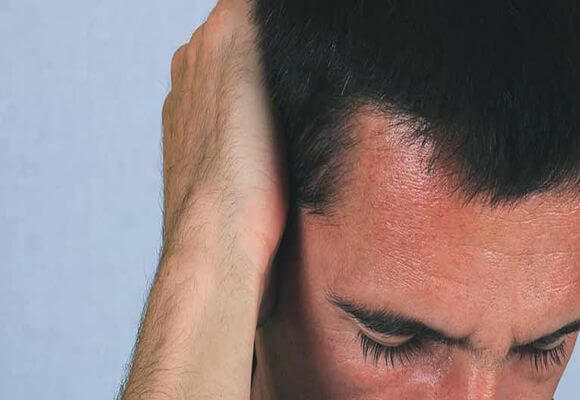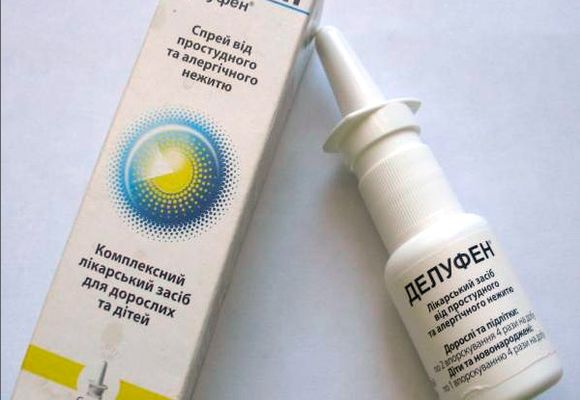What to do if your ear is swollen
Ear swelling can occur for various reasons. Swelling in the ear can appear not only as a result of various inflammatory processes in the hearing aid, but other factors can also cause it. Why swelling appears inside the ear and what to do about it, you need to understand in more detail.
Features of appearance
Ears are often vulnerable to various exogenous and endogenous factors. Aggressive factors from the external environment, as well as acute and chronic diseases, and infectious inflammatory processes can affect the condition of the hearing aid.
The main reasons why the ears become swollen include the negative effects of bacterial, fungal or viral agents.
Swelling in the ear canals can also be caused by eczema, an allergic reaction, injury, or the presence of a foreign object or insect. In the presence of such a symptom, an additional constant aching pain may appear, and sound perception may be partially lost.
And if treatment for this condition is not carried out or it is incorrect, there is a high probability of developing possible consequences in which the inflammatory process spreads to neighboring tissues and organs, including the brain.
It is important to contact a specialist in time, who will determine the cause of the swelling and also help eliminate it.

Provoking factors
The appearance of edema can be caused by various provoking factors, which are not only inflammatory or infectious processes. These could be allergic reactions to irritants, injuries, penetration or insect bites, even the effects of radioactive radiation.
This condition may occur more often in a child. This is due to immature hearing aids in children and a weakened immune system. Treatment for this condition depends on the cause.
The key reason that the ear is swollen is the impact of infectious pathological agents that develop in the nasal cavity and subsequently pass into the ear canal. Pathological microorganisms and viral particles penetrate the ear canal and can provoke the development of an inflammatory process.
All these reactions are complemented by painful sensations in the ears and deterioration in the quality of sound perception. Sometimes complete irreversible hearing loss develops. The main reasons that aggravate the course of the pathological process include:
- Weakness of the body’s natural resistance to viruses and bacteria;
- Acute deficiency of micro and macroelements, vitamin substances, in particular retinol and ascorbic acid;
- Inflammatory processes of a chronic nature;
- Oncological processes in the body;
- Regular hypothermia of the body.
Also, swelling of the earlobe, mucous membrane or cartilage can develop in professional athletes. The inflammatory process can begin to develop not only when playing sports in the winter, but also in the summer. Athletes who prefer to dive, swim, fly, or parachute especially often suffer from this phenomenon.
In such sports, a sharp drop in pressure occurs. Swelling of the ear canal can occur as a result of a blow or bruise. With persistent injuries or cartilage, the hearing aid may become deformed.
This is due to constant hemorrhages and blockage of the subcutaneous vessels located in the ear. In this case, the auricle becomes lumpy and swelling occurs. Such degenerative changes are considered irreversible.
Provoking factors for the appearance of swelling also include irradiation with radioactive substances and ultraviolet radiation. Such substances are used in diagnostic studies (radiography, magnetic resonance imaging, computed tomography).
Such diagnostic measures can cause various diseases and chronic inflammatory processes in the ear canal.
Sometimes, with frequent use of these examination methods, benign formations may even develop in the auditory tube, which have a tendency to become malignant. What to do with the tumor, how to relieve the swelling - only a qualified specialist can decide.
Regardless of age category, people may experience swelling due to allergic reactions.
Women are more often exposed to this phenomenon. Often, allergic swelling of the external ear canal develops in people over 25 years of age.
This phenomenon does not threaten the body, but it is important to consult a doctor in a timely manner to eliminate swelling and prevent possible consequences. Typically, in this case, antihistamines and hormonal drugs (tablets or drops) are prescribed.
Swelling behind the ear in a child or adult can be caused by the presence of a foreign object in the ear canal that blocks the auditory tubes.
It could be an insect, a pea, a bead. You should not self-medicate or try to remove a foreign object from the ear canal yourself. This should only be done by a qualified specialist.

Therapeutic measures
Initially, when identifying swelling in the ear canal, it is important to determine the cause of this phenomenon. After which the doctor prescribes therapy.
It can be done with medications prescribed by a doctor. It is important not to delay visiting a specialist, so as not to provoke the development of possible consequences and complications.
First, a visual inspection of the ear cavity and the canal itself is carried out. Additional otoscopy and radiography may be prescribed. Such measures will allow you to establish the exact cause of swelling.
The therapeutic effect involves eliminating the cause of the development of swelling, inflammation and obstruction of the auditory canal. The doctor usually prescribes vasoconstrictor drugs that are instilled into the nasal cavity (Nasivin, Vicks, Otrivin, Nazik, Delofen).
The course of therapy also includes the use of antibacterial drugs. They are prescribed depending on the cause, condition, age category. Can be prescribed for oral administration or intramuscular administration.

Physiotherapeutic procedures are also prescribed to help relieve swelling and cure ears in the presence of an inflammatory process. The most common physiotherapeutic procedures for the treatment of ear diseases include: electrophoresis, UHF therapy, alcohol compresses, tubes.
Blowing also helps restore normal function of the ear canal. This procedure reduces blood pressure and restores lost hearing functions. If such treatment is ineffective, catheterization of the ear canal is prescribed.
With this therapy option, it becomes possible to introduce certain drugs into the inner area of the ear. This way the treatment will be more effective, the medications will quickly be absorbed and begin their therapeutic effect.
If there is a foreign object in the auditory tube, you can tilt your head towards the affected ear. So the object can be eliminated on its own. If it remains inside the auditory tube, you should immediately visit a specialist.
You cannot take any action on your own to remove the foreign body. This way you can push it even further inside. It is important to contact a specialist in time, who will remove the foreign object and tell you what to do next if swelling is present.
It is important to see a doctor on time. This will eliminate negative symptoms and prevent complications.
